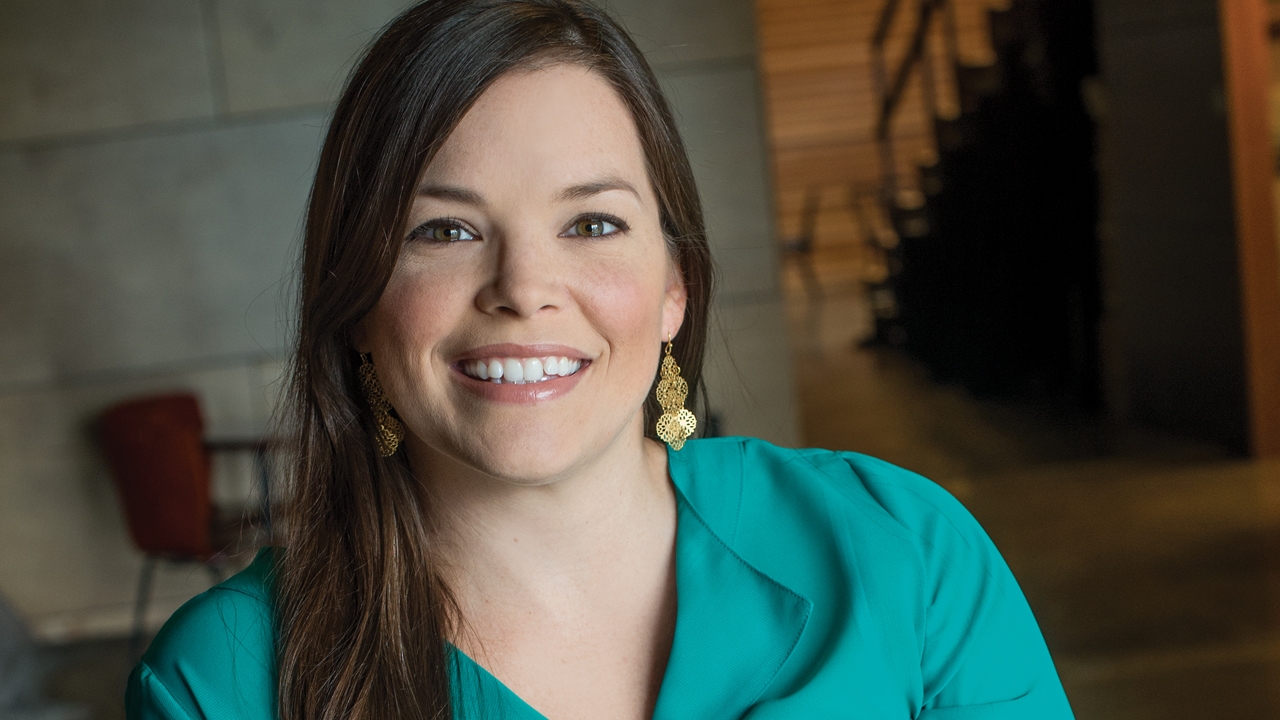Lindsay Sutton could have taken her UAB doctoral degree in developmental psychology, accepted a job offer in Washington, D.C., and spent her career following the typical path of most developmental psychologists into government or academia.
Instead, she took a more colorful, unconventional route, signing up with an advertising agency. Sutton started working as a research psychologist and assistant strategic planner at Birmingham’s Intermark Group in 2013. While it’s a rare career choice in her field, Sutton says it’s a good fit for her—and an opportunity to put her education and curiosity about human behavior to use in creative ways. Advertising builds upon the emotional reactions and cognitive processes that influence people’s choices and opinions, and Sutton’s studies focused heavily on decision analytics. Adding science-based research gives the agency a new, powerfully effective means of helping clients identify and connect to a target audience, she explains.
Dads in Depth
For example, one client wanted to promote a series of paint-ball games, and Sutton helped aim the message in the right direction. “Women or moms are usually the purse-keepers and decision makers when it comes to shopping, particularly with gifts like toys,” she says. But women are also usually wary of a toy that looks like a gun, she adds.
“This was a case of understanding the audience,” Sutton says. “We shifted gears and did a case study on Generation X dads and who they were and what they wanted to be.” It turns out that Gen X dads want to be engaged in their children’s lives and to be the superhero who brings home the cool toys, meaning they would likely view the paint-ball games as something they would buy to play with their kids, she says. “There are definitely empirically validated ways to make an emotional connection—to really reach the person you are seeking.”
Automatic for the People
Sutton explains that people are “on automatic processing”—we simply can’t ponder why we make the countless decisions we do daily. The psychology of advertising “capitalizes on some of those automatic processes,” she says. “It’s not about deceiving consumers; rather, it’s about talking to them in ways that take into account patterns of human behavior, thought, and memory.”
She can tell you a lot about human behavior from her previous stints as a bartender and as a corrections officer for the Hoover, Ala., police department. Those experiences inspired the Fort Lauderdale, Fla., native to attend UAB to earn a master’s degree in public health, concentrating on outcomes research, and her Ph.D. in developmental psychology, with a focus on statistics and decision analysis. She met Intermark’s CEO, Jake McKenzie, at UAB, and a career match was made.
“They’ve really encouraged me to be a psychologist,” Sutton says of her Intermark colleagues. “They’ve given me the opportunity to start some really novel research.” Currently, she is conducting an in-depth analysis of the millennial generation—the children or grandchildren of baby boomers. “I want to inform how we address millennials,” she says. “They’re slated to have the most purchasing power of any generation in history.” Often labeled as the “me, me, me generation” or “trophy generation” for a sense of entitlement, they also exhibit a strong drive to get ahead and make a mark in the world, Sutton explains.
“That’s where UAB’s tradition of solid, sound research comes in,” Sutton says. “I had amazing researchers as mentors, and I got to present my behavior models in front of some of the world’s best.
“Intermark took a chance on me, and I love that I can stay true to my research roots but be innovative in that space, too.”


